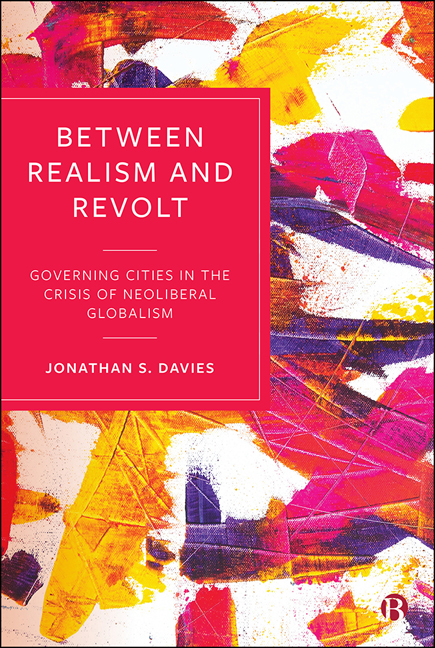Book contents
- Frontmatter
- Dedication
- Contents
- List of Tables
- Contributing Investigators
- Acknowledgements
- Preface
- Introduction
- 1 Studying Urban Political (Dis)Orders
- 2 Dynamics of Crisis, Neoliberalisation and Austerity
- 3 Austerity and State Rescaling
- 4 Consolidating Neoliberal Austerity Regimes
- 5 Regime Divergence and the Limits of Austere Neoliberalism
- 6 Resisting Austerity: Resonant Solidarities and Small Wins
- 7 The ‘Activity of Ruling Groups’: Containment, De-mobilisation and Fragmentation
- 8 Reading the Conjuncture: (Dis)Ordering Dynamics in the Crises of Neoliberal Globalism
- Afterword: Into the Pandemic
- Notes
- References
- Index
7 - The ‘Activity of Ruling Groups’: Containment, De-mobilisation and Fragmentation
Published online by Cambridge University Press: 05 January 2022
- Frontmatter
- Dedication
- Contents
- List of Tables
- Contributing Investigators
- Acknowledgements
- Preface
- Introduction
- 1 Studying Urban Political (Dis)Orders
- 2 Dynamics of Crisis, Neoliberalisation and Austerity
- 3 Austerity and State Rescaling
- 4 Consolidating Neoliberal Austerity Regimes
- 5 Regime Divergence and the Limits of Austere Neoliberalism
- 6 Resisting Austerity: Resonant Solidarities and Small Wins
- 7 The ‘Activity of Ruling Groups’: Containment, De-mobilisation and Fragmentation
- 8 Reading the Conjuncture: (Dis)Ordering Dynamics in the Crises of Neoliberal Globalism
- Afterword: Into the Pandemic
- Notes
- References
- Index
Summary
Introduction
Chapter 6 explored resistance from the perspective of its capacity to deplete the governability of austere neoliberalism, construct solidarities, incubate alternative political economies in local state and civil society, and channel particularistic grievances into a more generalised anti-neoliberal or anti-capitalist politics. From a Gramscian regime theoretical perspective, it focused on what organising resources forces opposing austere neoliberalism were able to mobilise, whether they act directly on the (local) state apparatus or capacitate and empower rebellious forces within civil society. This chapter returns to the problem of containment, de-mobilisation and fragmentation, dimensions of urban governance that mitigate against both antagonistic and constructive forms of resistance. This endeavour casts light on a number of issues: first, the means by which urban regimes contain and enclose resistance, and insulate themselves from potential impacts; second, the chilling and divisive effects of social partnership traditions; third, structural and institutional limitations on regime transition through new municipalism; and finally, the recuperative power of neoliberalising and reactionary forces, consolidated respectively through Syriza in Greece (Chapter 2) and Britain's Conservatives in the struggle over Brexit.
Containing and deflecting resistance
The relative normalisation of austerity in Leicester was notable for having occurred in the context of a sustained national government offensive since 2010, leading to a deeply regressive restructuring of the local state (Chapters 3 and 4), and real-terms spending reductions potentially greater than those in any other city (Chapter 2). Even so, the experience of crisis and austerity was less sudden and dramatic than in Athens, Barcelona or Dublin. Unlike previous recessions in the 1980s and 1990s, foreclosures and house price falls were limited, as were corporate bankruptcies, mass redundancies and rises in unemployment. The effects of the crisis tended to be incremental, though cumulatively devastating. Poverty, precarity and under-employment increased, particularly among younger people, while central government subjected those excluded from work to a harshly authoritarian workfare regime. According to a council official interviewed in 2013, the ‘cost of living crisis has been attenuated a little by… the low levels of inflation… fall in oil prices which is no doubt welcome in many households and indeed businesses’ (Davies et al, 2020: 69).
- Type
- Chapter
- Information
- Between Realism and RevoltGoverning Cities in the Crisis of Neoliberal Globalism, pp. 155 - 178Publisher: Bristol University PressPrint publication year: 2021

